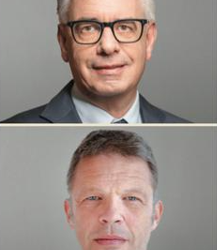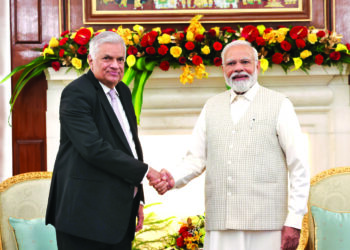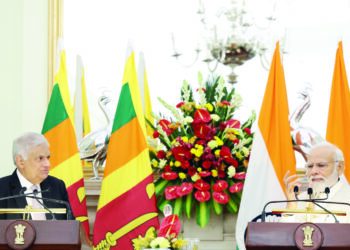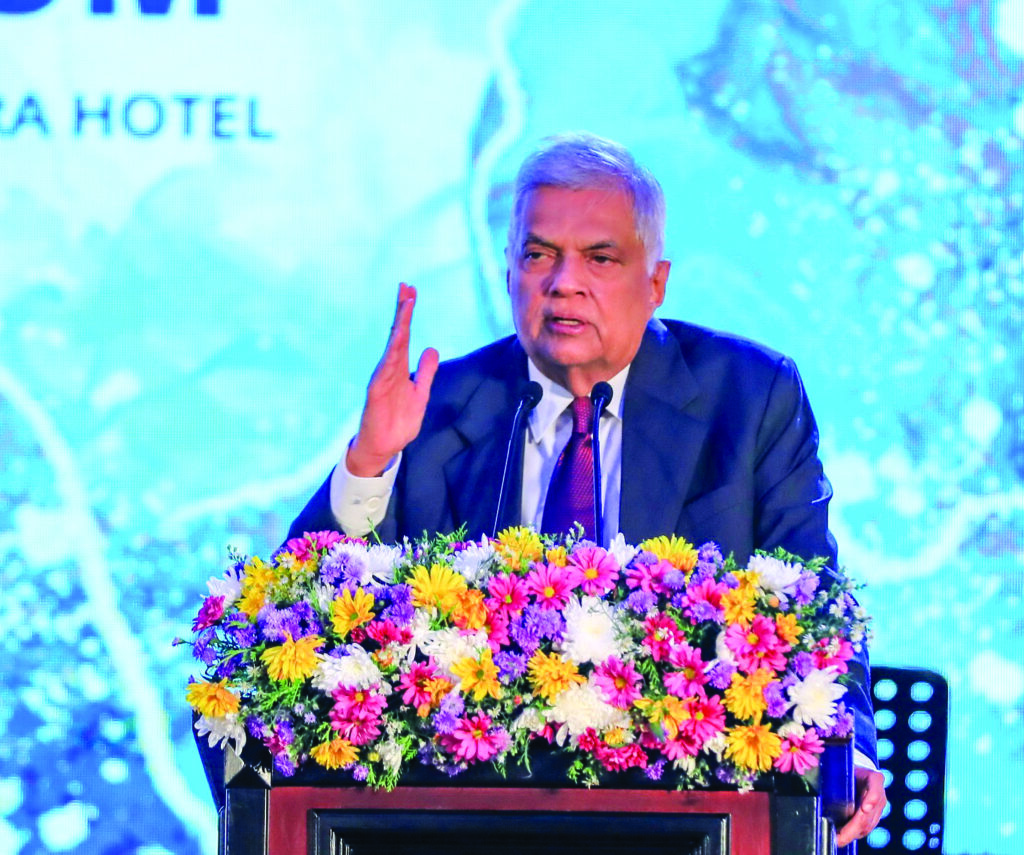
President Ranil Wickremesinghe.
President Ranil Wickremesinghe stated that he is interested in exposing Sri Lanka to the world for economic development promptly as possible and to implement related legal reforms. The President expressed these views while participating as the chief guest at the “Indian CEO Forum”.
President Ranil Wickremesinghe further commented: Trade between Sri Lanka and India began 700 years ago. We have a remarkable history of Kerala merchants venturing to Sri Lanka and establishing businesses, ultimately integrating into our local system. This cultural amalgamation is evident in landmarks like the Pattini Devalaya in Navagamuwa, which reflects the influence of Kerala on Sri Lankan culture. By the late 19th century, India accounted for only 1% of the world’s GDP. However, with the shift of economic power towards Asia, India has again risen to prominence. Just as East Asia, including countries like Japan, Korea, and China, witnessed significant growth 75 years ago, it is now India’s turn, along with the Indian Ocean region. It’s important to note that India is not the sole nation rising in this context; the oil countries in West Asia are also on the ascent. Positioned strategically in the middle, Sri Lanka benefits from its proximity to India and its rich history, cultural heritage, and longstanding trading relationships spanning 2,500 years.
The world is evolving, and India is developing rapidly, particularly under Prime Minister Modi’s leadership. We, too, have experienced our economic challenges, but we are a resilient nation, not destined for a Greek tragedy. As our economy recovers, we must prioritize economic restructuring. We initially made progress, but our pace has slowed. Once we complete the debt restructuring process, we will focus on a comprehensive growth agenda. This entails a massive overhaul of our economy, legal framework, and systems, aligning our path with India’s.
Our goal is to establish a highly competitive economy that can stand on par with the rest of the world, encompassing green and digital sectors. India and Sri Lanka should embark on this transformative journey together, as we have for the past 2,500 years. Regardless of political dynamics, our cultural and economic ties have remained steadfast.
My primary objective during my visit to India will be to explore connectivity, as High Commissioner Gopal Bagley aptly stated. We must determine our long-term objectives and aspirations for the next 10 to 15 years. This marks the beginning of a new era, and we must forge ahead together.
It’s essential to remember that development doesn’t halt in India. In the next 50 years, it will extend to Africa and beyond. Therefore, the vision we discussed with Prime Minister Modi should guide our immediate actions. Ultimately, it’s crucial to recognize that the relationship between our countries is not solely driven by governments but by our people, who are moving forward rapidly. We must adapt to the changing world, avoiding the pitfalls that come with government intransigence. Hence, we must foster a long-term relationship between our two nations, transcending individual leaders or political parties. India and Sri Lanka possess immense potential, and it is our path forward.
Responding to a point addressed by T. S. Prakash, President of the Indian CEO Forum, on the circulation of Indian currency in Sri Lanka, President Wickremesinghe stated that the Sri Lankan Government would want to see the Indian rupee used as much as the dollar. It makes no difference to us if India becomes a common currency. We’ll have to figure out how to go about it. So that is what we must do. We must become more open to the outside world. We must be competitive not just for Sri Lanka but also for the rest of Southeast Asia, East Asia, and Australia. We must negotiate a more comprehensive trade agreement with the EU. If you want to, you can dominate the entire world. You will only succeed if you want to accomplish it.
Meanwhile, Gopal Bagley, High Commissioner of India in Sri Lanka, said: For a long time, Indians have conducted business in Sri Lanka. We built a bridge of friendship between the two countries by launching this business. I feel it will have a positive impact on the people of Sri Lanka. When the people of this country were oppressed, India stood by them. During last year’s financial crisis, India and the Indian business community helped Sri Lanka’s economy recover. Sri Lanka is now recuperating from the financial crisis; it should be noted. The Government of India and the Indian business community supported it in this regard. Even during the initial crisis, Indian businessmen began doing business in Sri Lanka to demonstrate to the rest of the world that the country’s financial status was stable. For the past 40 years, the leaders of this country have promoted Indian businesspeople doing business in Sri Lanka. I want to point out that the present President Ranil Wickremesinghe, has also expressed his support.
It is recalled here that the Indian Government and business community will support Sri Lanka’s economic and physical development. It is an Indian promise.
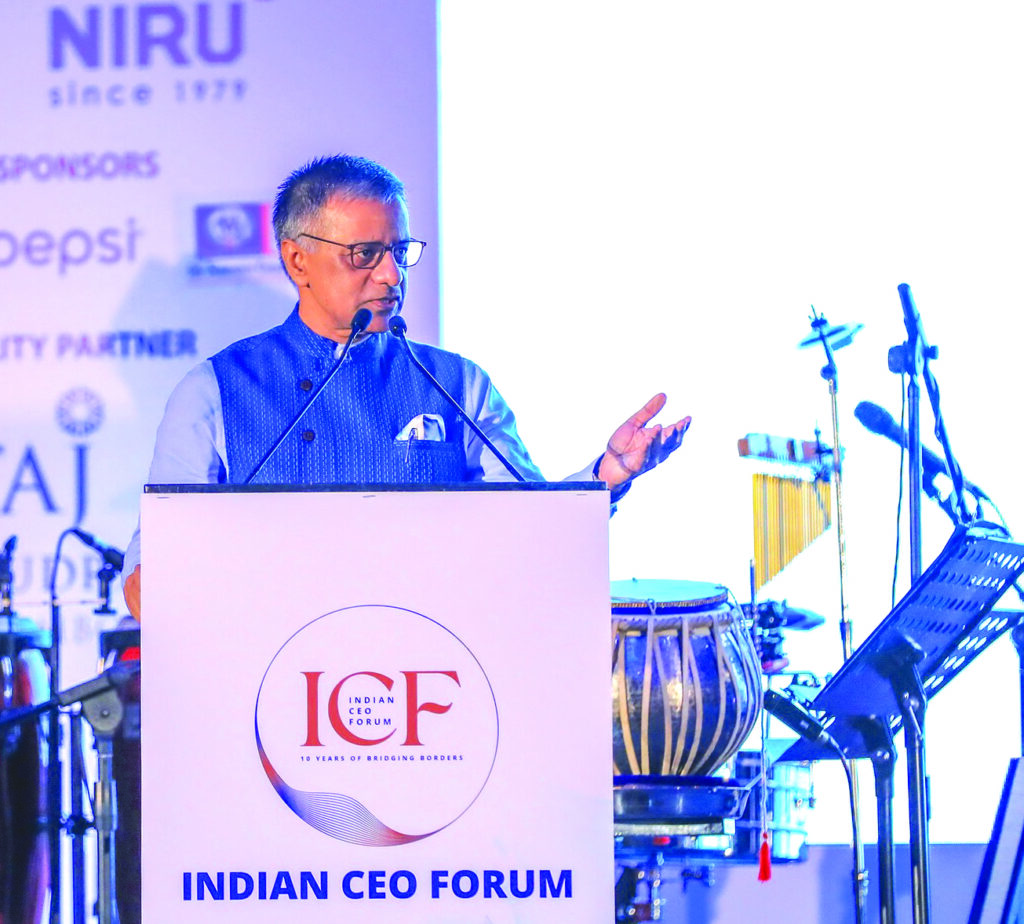
Gopal Bagley, High Commissioner of India in Sri Lanka.
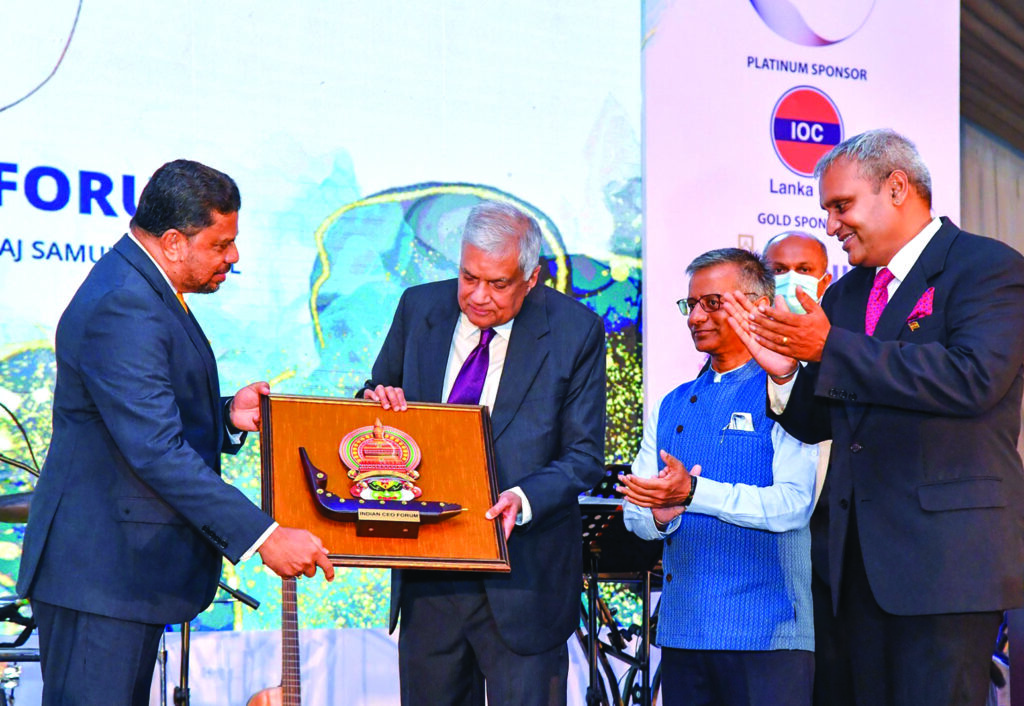
T. S. Prakash, President of the Indian CEO Forum presenting a commemorative gift to President Ranil Wickremesinghe. Also present was Gopal Bagley, High Commissioner of India in Sri Lanka.


